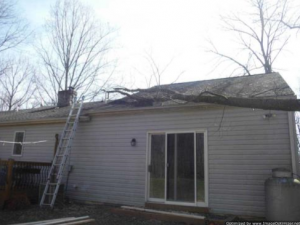 Hurricane season has just started, so now is a good time to point out what you should do if one is headed your way. Here are the Top 15 things to consider before a storm hits.
Hurricane season has just started, so now is a good time to point out what you should do if one is headed your way. Here are the Top 15 things to consider before a storm hits.
- Restock your emergency preparedness kit. Include food and water sufficient for at least three days, medications, a flashlight, batteries, cash, and first aid supplies.
- Plan how to communicate with family members if you lose power. For example, you can call, text, email or use social media. Remember that during disasters, sending text messages is usually reliable and faster than making phone calls because phone lines are often overloaded.
- Review your evacuation zone, evacuation route and shelter locations. Plan with your family. You may have to leave quickly so plan ahead.
- Review insurance policies and catalog belongings.
- Collect and safeguard critical financial, medical, educational, and legal documents and records. Make copies and safeguard, if you have time.
- Back up electronic data. This is best if done offsite or through cloud storage.
- Pack a “go bag” to bring with you if you have to leave quickly.
- Keep your car in good working condition and keep the gas tank full; stock your vehicle with emergency supplies and a change of clothes.
- Bookmark your city or county website for quick access to storm updates and emergency instructions.
- Bring loose, lightweight objects inside that could become projectiles in high winds (e.g., patio furniture, garbage cans); anchor objects that would be unsafe to bring inside (e.g., propane tanks); and trim or remove trees close enough to fall on the building.
- Consider covering all of your home’s windows. Permanent storm shutters offer the best protection for windows. A second option is to board up windows with 5/8” exterior grade or marine plywood, cut to fit and ready to install.
- Charge your cell phone now so you will have a full battery in case you lose power.
- If you’re not in an area that is recommended for evacuation, plan to stay at home or where you are and let friends and family know where you are.
- Turn your refrigerator or freezer to the coldest setting and open only when necessary. If you lose power, food will last longer.
- Keep a thermometer in the refrigerator to be able to check the food temperature when the power is restored.
If a storm does cause any damage to your property, please reach out to us. We are always here to help.





